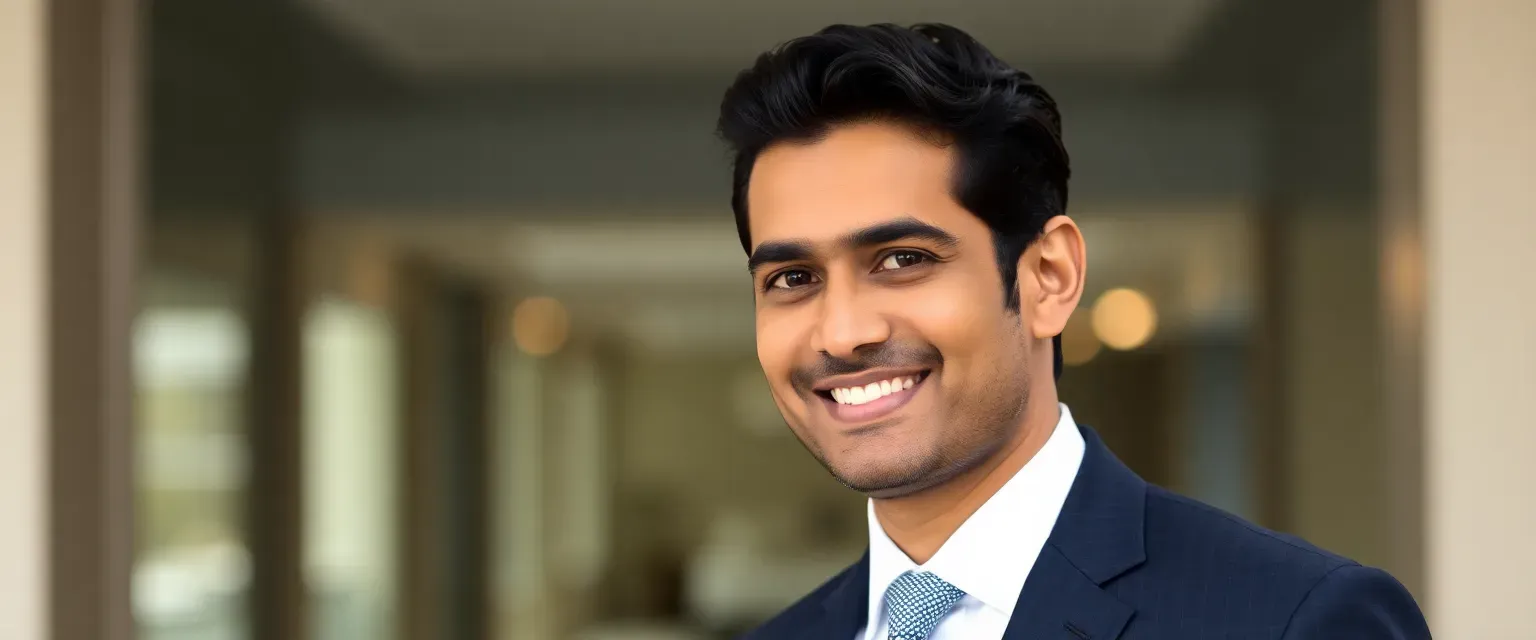Sunil Nikate is a man of contradictions, a figure who stands at the crossroads of tradition and modernity. In his mid-thirties, Sunil possesses an aura that commands attention without demanding it. His tall, lean frame is often draped in crisp, tailored suits that speak to his meticulous nature and eye for detail. Yet, beneath this polished exterior lies a soul tethered to the roots of his upbringing in a small Indian village.
Sunil's skin is a warm shade of brown, kissed by the sun from years spent under open skies during his childhood. His face is angular with high cheekbones and a strong jawline, features softened by deep-set eyes that hold stories untold. These eyes are perhaps his most striking feature; they are pools of dark ink that seem to absorb everything around them, reflecting both wisdom and an unyielding determination.
His hair is thick and jet black, meticulously combed back into a style that speaks of both discipline and elegance. A neatly trimmed beard frames his face, adding an air of maturity and gravitas to his appearance. Despite the sophistication he exudes, there’s an approachable warmth in his smile—a smile that reveals perfectly aligned teeth and dimples that hint at a playful side rarely shown.
Sunil's voice carries the lilting cadence of his native Marathi accent, which he has never shed despite years spent abroad. It’s a voice that can soothe or command with equal efficacy, one that resonates with sincerity whether he's negotiating high-stakes deals or sharing tales from his past over chai.
Beneath the surface of this well-groomed professional lies a man driven by dual desires: the ambition to succeed in the bustling world of international business and the yearning to honor the values instilled in him by his family. Sunil's parents were farmers who taught him resilience through their toil on the land—a lesson he carries into every boardroom battle.
Yet, success does not come easy for Sunil. The corporate world is fraught with challenges—cultural barriers, cutthroat competition, and ethical dilemmas—that test his resolve at every turn. He finds himself constantly navigating these turbulent waters while trying to remain true to himself.
One might wonder why someone so deeply rooted in tradition would choose such a path fraught with moral ambiguity. For Sunil, it’s about proving something—not just to himself but also to those who doubted him along the way. He wants more than anything else to create opportunities for others like him—those who come from humble beginnings yet dream big dreams.
But there are obstacles aplenty on this journey toward self-fulfillment: colleagues who see him as nothing more than an outsider; societal expectations pulling him back towards conventional roles; internal conflicts between personal ethics versus professional demands—all conspiring against him achieving what he truly desires.
In response to these challenges—and perhaps because of them—Sunil becomes adept at playing different roles depending on circumstances: shrewd negotiator when needed; compassionate leader when required; loyal friend always ready with advice or support whenever called upon by loved ones scattered across continents far removed from each other geographically but forever connected emotionally through bonds forged long ago amidst fields ripe with promise yet burdened still today under weighty expectations placed upon shoulders broad enough only thanks largely due diligence paid daily throughout lifetime dedicated wholly towards pursuit excellence wherever found regardless cost incurred personally professionally alike.
